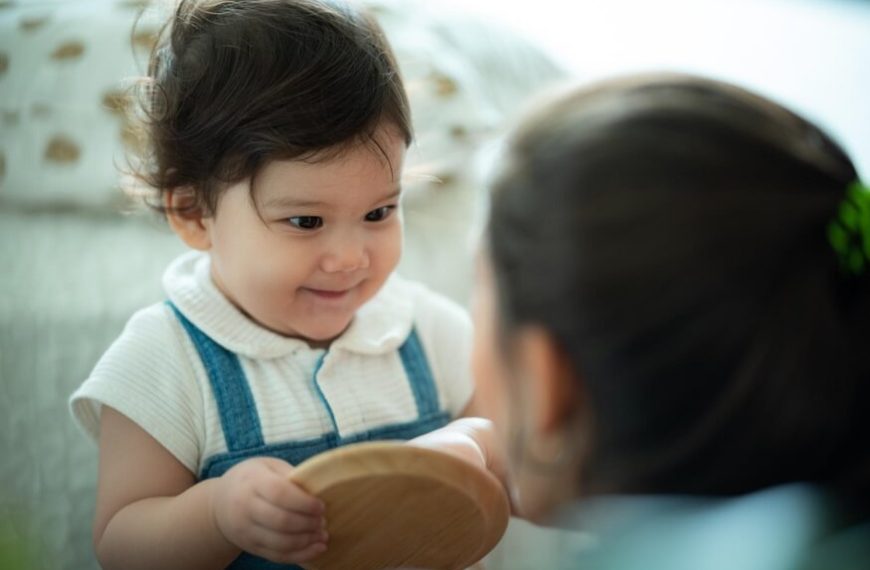Empathy is a quality that allows you to imagine yourself in someone else’s place and feel what they are feeling in a particular situation and respond accordingly. Empathy for kids is a complex skill to develop but you can definitely help your child to be more empathetic. An empathetic child understands that they are a separate person, understands that other people have different feelings and thoughts from theirs and recognizes emotions like anger, happiness, sadness, disappointment etc. Empathy for kids is seeing a child fall and bruise their knee and be able to imagine what they are feeling and also show an appropriate response of comforting them.
Why is Empathy Important in Toddlers
Empathy in toddlers is essential as it builds an emotionally strong child and this eventually translates into a nation of emotionally strong children. It is understanding other people and their cultures, of how they feel and think. When we develop this understanding early in life, it becomes easier to accept the views and beliefs of people who are different from us as we grow older. Children learn to regulate their emotions in the process and the ups and downs of life become more manageable as a result. A lot of negative behaviour like bullying and various forms of cruelty are shown by children later in life because they haven’t developed the skill of empathy.
Empathy Milestones
Empathy is a social-emotional that develops in the first few years of a toddler’s life. Some of the important milestones in the development of empathy are,
- Establishing a loving and secure relationship with the parent is the first milestone. When you love, understand and accept your toddler they learn to do the same with others.
- Social referencing is something babies start at around 6 months when they start looking at a loved one to judge their reaction to a situation or person. When someone new visits your house, your baby judges your reaction to that person to see if that person is good. Social referencing helps babies understand the people and world around them.
- At 18 to 24 months old, toddlers develop a theory of mind as they realise that just as they have their own feelings and thoughts, others do too, and these may be different from his own.
How to Cultivate Empathy
- It’s best to teach by example, so show empathy to your child when they are sad or scared. Talk to them about others’ feelings and explain to them why they are feeling sad or upset. You can also give them suggestions on how to show empathy, for example, offering a tissue when someone is crying. Try to read them stories about feelings.
- Act as a role model because when you are kind and caring to others, your toddler will learn by example. It will help them to build relationships that are strong and mutually respectful. Similarly, they notice when you treat a housekeeper or server at a restaurant as invisible and emulate that behaviour.
- Communicate with your toddler by using ’I’ messages as it defines the importance of self-awareness — “I don’t like it when you pull my hair. It hurts me.”
- When a child is sad or angry, it’s normal to rush in and try to ease the situation. But we need to remember that these situations are part and parcel of life and children need to learn how to manage and cope. Validate these difficult emotions and tell them it’s okay to feel them. If they are angry at not being allowed to watch television, tell them it’s okay to be angry and once they are done being angry, they can help you make a pizza or cake. This also teaches children to empathise with others when they have difficult emotions.
- Use pretend play to talk to kids about empathy. For example, you can have your child’s stuffed teddy bear say that he does not want to play with the stuffed monkey. Ask your child how they think the monkey feels and what they should say to the teddy bear.
- When we teach toddlers to say, “I am sorry,” they often don’t understand what it means and it doesn’t always mean they are showing empathy. It’s better to help them focus on the other person’s feelings. If they push a friend, you can tell them that the other person is crying because they are sad at being pushed and that they should check if they are okay. In this way, children learn to make a connection between pushing and the friend being sad and crying.
- Learning empathy takes time, so one has to be patient. It’s a complex socio-emotional skill and will continue to develop through your child’s life.
- As a parent, set high ethical expectations from your child and make caring for others a top priority. When children see this, they begin to value the perspective of others and show compassion for them.
- Create opportunities for your child to show empathy as developing this skill requires guidance and practice. Empathy becomes a natural reflex when they always consider the perspectives and circumstances of others.
- It’s easy to have empathy for your family members and loved ones or people who are similar to you. But what is important is to have empathy for people beyond that circle. As caregivers, it’s important that we guide children from a very young age to show care and understanding for people who are different from them. As adults, we need to be a model to children by showing appreciation to all kinds of people.
- Another way on how to cultivate empathy is to help toddlers manage their feelings appropriately and develop self-control. Often children don’t express empathy because it is overshadowed by negative feelings of shame, jealousy or anger. Helping them to manage these negative feelings helps them to show empathy.
- Instead of just praising children for good deeds, it’s important to help them develop a moral identity. They should see themselves as someone who cares for the feelings and thoughts of others.
- Avoid showing a sense of competitiveness in front of children. Parents often focus on the academic achievements of their child rather than focusing on raising a kind and good person. Even when they value empathy, they only praise achievements which give a wrong idea to children.
- Be mindful of the screen time of kids. They very often would rather stare at a screen than have face-to-face interactions which encourages empathy.
Egocentric behaviour is rampant in society today and this exclusion of others does not set a good example for children. We need to make our children understand that they are not the centre of the universe and have to focus on others as well. When children lack empathy, it shows up as cheating, bullying, poor moral values, anxiety and depression. As adults, we need to encourage children to develop empathy and for more tips on how to cultivate empathy toward others, do get in touch with the EuroKids website.
















